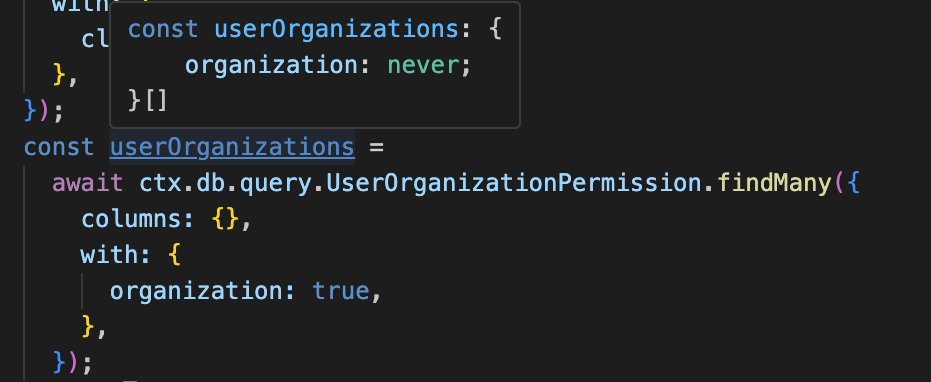G$Row
Explore posts from serversBABetter Auth
•Created by G$Row on 3/5/2025 in #help
Session cookie not updating
I'm not totally sure what is going on. I augmented my session table to include my own organization data as well as the users timezone.
After a user is logged in, if they don't have an active organization, my middleware routes them to a page where they can choose an organization to use. When the user selects the organization an endpoint is called that updates the value in the session table.
I then call the
getSession function with the disableCookieCache: true on the server. I saw in a Github issue that using that should refresh the cookie with the new data that is in the session table. When I log the results of that server side call to getSession it looks great. It's exactly as I expect with the active organization and the timezone set properly.
Once the server side call is done I run a getSession withe disableCookieCache on the client side as well, once again the session object looks great. I then use router.push to go to my dashboard.
However, when I get the session in the middleware, using the recommended method with betterFetch, the session object does not have the active organization set nor does it have the timezone set, even if I use disableCookieCache: true. I don't understand what is going on.
My best guess is that there is some caching going on somewhere either in Next or in Better-Auth that is giving me an old cookie.
I need a fresh right-out-of-the-oven cookie!
Any help would be much appreciated.
Thanks!11 replies
DTDrizzle Team
•Created by G$Row on 7/23/2024 in #help
I'm getting a Postgres Error when running my drizzle query but not when running the generated sql
I have a drizzle query.
Which generates this query
When I run my js code I get the error
PostgresError: column "calendar_event.start_time_utc" must appear in the GROUP BY clause or be used in an aggregate function but when I just run the query in Dbeaver it runs just fine. I'm very confused. I'm not sure if I made a mistake or if this is a bug. Seems like a bug though.4 replies
How to get data type from onMutate function in useMutation
I'm doing optimistic updates using the technique which is documented here https://tanstack.com/query/latest/docs/framework/react/guides/optimistic-updates . I found that I'm using the same queries in multiple spots and want to extract the update code so that I don't have to copy and paste. I can't figure out the type of the
data parameter in the onMutate function.
I've tried using type MutateData = Parameters<typeof api.task.createTask.useMutation>[0] . The problem is that I can't then access the ['onMutate'] because it doesn't exist on there. Does anyone know how to get this?30 replies
DTDrizzle Team
•Created by G$Row on 4/18/2024 in #help
How to use subquery in inArray?
I'm trying to use a subquery to populate an IN statement. There is no typescript error but it doesn't work.
Here's my code.
Here's the executed sql
Notice the third parameter being just
{}.1 replies
DTDrizzle Team
•Created by G$Row on 11/8/2023 in #help
Getting "never" type from querying a relation

5 replies